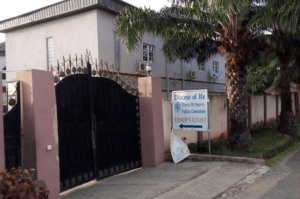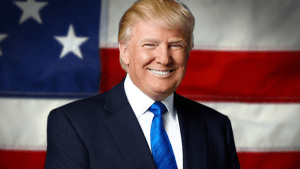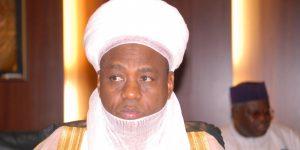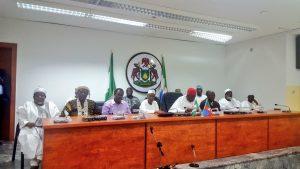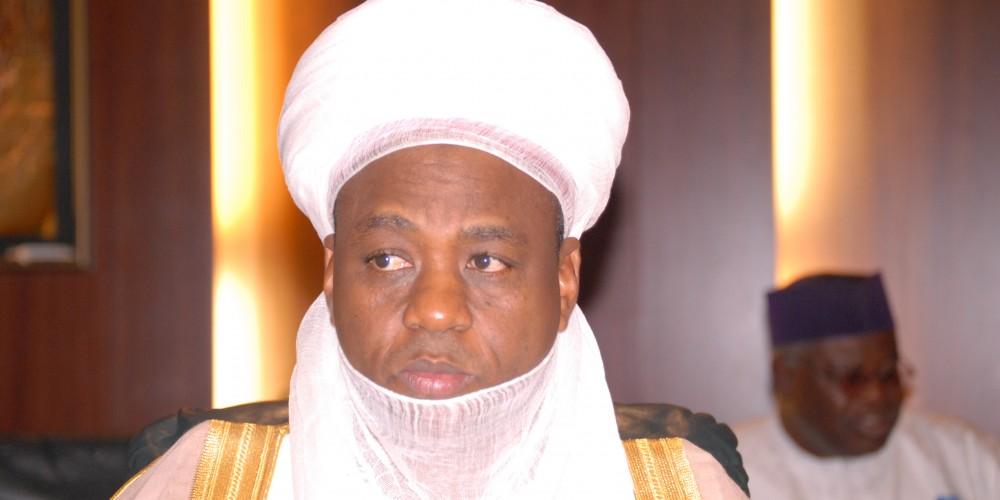
Sultan of Sokoto Alhaji Muhammad Saad Abubakar
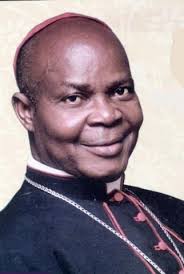
In his inaugural address on May 29, 2015, President Muhammadu Buhari said inter alia: “Boko Haram is a typical example of small fires causing large fires…through official bungling, negligence, complacency or collusion, Boko Haram became a terrifying force taking tens of thousands of lives and capturing several towns and villages covering swathes of Nigerian sovereign territory.”
While those remarks represent a pointed reference to what has been perceived as abdication of responsibility on the part of the administration of his predecessor, former President Goodluck Jonathan, the ceaseless silence of President Buhari on the banditry of herdsmen represents a sad reminder of the negligence he so eloquently disparaged.
Given the recent massacre of hundreds of innocent Nigerians in southern Kaduna by herdsmen, not a few Nigerians expected this silence to be broken. But those who harboured such expectation got a rebuke from one of the presidential spokespersons, Femi Adesina. Adesina is reported to have said that, in consonance with the principle of federalism, the President did not need to say a word on the recent killings. The responsibility for security in Kaduna State, he claimed, belonged to the Kaduna State governor Nasir El-Rufai. But Adesina did not consider the fact that the latter’s effectiveness as chief security officer has been eroded. The governor has said that he had paid a pacifying visit to the marauders when in fact he should have had them arrested.
Adesina’s remarks do not serve the President. They remind one of a saying that Late President Harry S. Truman of the United States of America made popular. On President Truman’s desk was a sign bearing the inscription: “The buck stops here.” Truman understood the imperative of a decisive and responsible presidency. In the same vein, it is simply inexcusable for our own President to remain silent while innocent Nigerians are being slaughtered. Silence in the matter of marauding herdsmen negates the content and message of President Buhari’s inaugural address. Moreover, Mr Adesina’s explanation of the silence by recourse to the principle of federalism is in clear contradiction of another remark made by President Buhari in the same address of May 29, 2015.Then the President said: “Constitutionally, there are limits to powers of each of the three tiers of government but that should not mean the Federal Government should fold its arms and close its eyes to what is going on in the states and local governments.”
There is also the admonition offered by the Minister of the Interior, Lt-Gen. Abdulrahman Dambazau. Speaking through his Press Secretary, Ehisienmen Osaigbovo, he had warned religious leaders to refrain from reading and interpreting the killings in southern Kaduna through the lenses of religion. For him, it is an altercation between herdsmen and farmers. One would agree with the minister that this is a conflict between herdsmen and farmers. But it is also the case – and the minister’s admonition clearly avoids admitting this – that the herdsmen are of one ethnic and religious affiliation while the farmers are of another ethnic and religious affiliation.
The primary responsibility of government is the protection of the land and its citizens. Unfortunately, successive governments have failed Nigerians in this regard. President Buhari’s remarks in his inaugural address raised expectation that the government he leads would be an exception. But there is now a wide gulf between expectation and experience. This gulf will need to be bridged.
President Buhari was right when he said, “Boko Haram is a typical example of small fires causing large fires.” That is why one must quickly add that the issue of marauding herdsmen may turn out to be a metamorphosis of Boko Haram, another example of failure to grasp the import of the saying: “A stitch in time saves nine.” Instead of his presidential silence, the ambivalence of Governor El-Rufai’s “pacifying visit”, Adesina’s attempt to pass the buck, and General Dambazau’s utterly unhelpful admonition, there is need to put out this small fire now before it engulfs the whole country. If and when President Buhari breaks his silence and takes a decisive stance on the menace of herdsmen, he would underscore the veracity of his own words in the same inaugural address: “Today marks a triumph for Nigeria and an occasion to celebrate her freedom and cherish her democracy.” Killing of innocent Nigerians has nothing to do with the triumph of democracy. We are not free if our life is in danger while government that ought to protect us appears to be helpless.
In all these, the Sultan of Sokoto, Alhaji Muhammad Sa’ad Abubakar III, has demonstrated good leadership qualities in his clear and unambiguous condemnation of the killings in southern Kaduna. Quoting from the Holy Quran, the Sultan said: “If anyone slew a person – unless it be for murder or for spreading mischief on the land – his punishment would be as if he slew humanity as a whole and if anyone saved a life, his reward would be as if he saved the lives of humanity as a whole.”
By making that statement, the Sultan, rather than indulge in the academic exercise of debating the religious affiliation of perpetrators of the killings, has taught an invaluable lesson on the place of practical wisdom in matters of governance.
Anthony Cardinal Okogie is Archbishop Emeritus of Lagos Archdiocese
